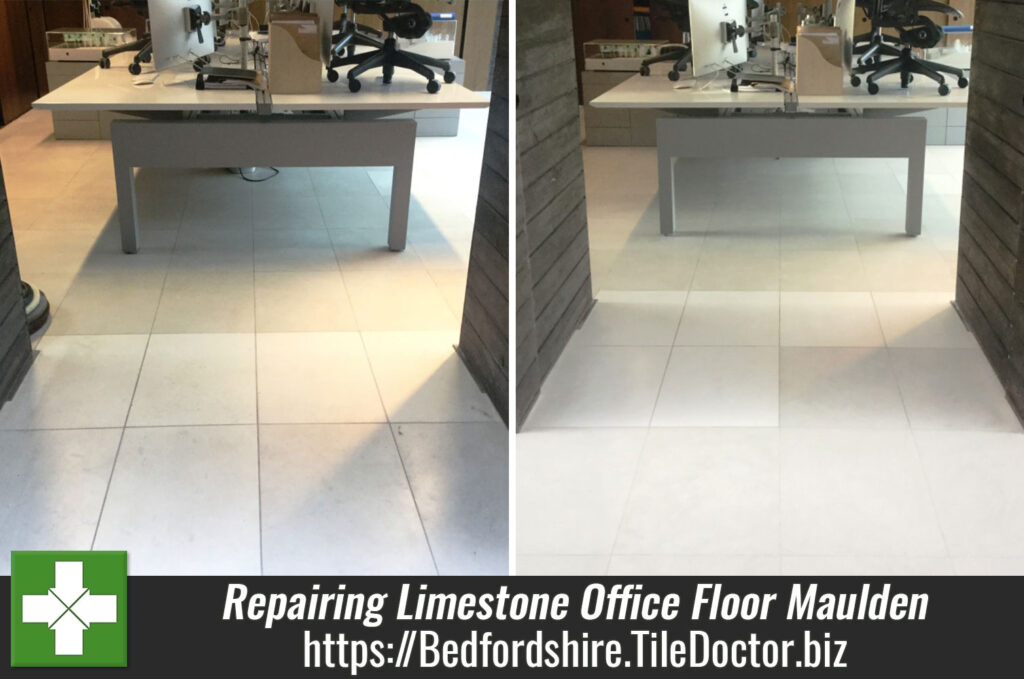The following photos show a modern Limestone tiled floor that had been damaged by the office cleaner. Bit of a long story but basically the cleaner had inadvertently placed a bottle of a strong cleaning chemical which was leaking in a bin liner, that then proceeded to leak onto several areas of the floor as he walked around the office. The chemical soaked into the Limestone tiles unnoticed causing damage and acid etching.

 |
 |
Due to it being a busy office environment it wasn’t possible to do work during the week so the work was booked in for the weekend.
Burnishing and Polishing Limestone Floor Tiles
The process used for cleaning and restoring these floors was to use hand held diamond blocks starting with 100 grit and polishing out the acid etching lines using small amounts of water, I then repeated this process with a 200 grit block graduating the cleaned area to blend in before switching to the machine to apply the burnishing pads.
The burnishing pads are applied from coarse to fine starting with a coarse 400 grit pad that removes old sealers and dirt. The floor was rinsed and then then the 800 grit pad was applied which is the first step in restoring the polish to the Limestone, this was followed by the finer 1500 grit pad which brings up the polish even further and giving the whole area a consistent appearance. One of the benefits of using this system is as no chemical are required, only a little water to help lubricate so it’s extremely environmentally friendly.
After applying the third pad the floor was given a thorough rinse with water to remove any soil produced by the burnishing process. The water was then extracted from the floor using a wet vacuum and left to dry off overnight.
Sealing Limestone Floor Tiles
I returned on the Sunday to polish the floor to a high shine with the last very fine burnishing pad which is 3000 grit and is applied without any water. Once complete the floor was sealed using Tile Doctor Ultra Seal which is a premium hard wearing sealer that provides a natural finish.
 |
 |
I appreciate it’s tricky to see the difference in these photographs but hopefully it’s comforting to know that if you have a similar problem it can be resolved.
Prevention of course is better than the cure of course so be wary of acidic products especially supermarket cleaning products which tend to have acidic formulas that will reduce the life of your sealer and damage the stone floor over time.



For the regular cleaning of polished stone floors we recommend using a specialist cleaning product such as Tile Doctor Stone Soap. If you wish to use something else the read the label in detail first, most supermarket tile cleaners are only suitable for glazed tiles as they are acidic and this will erode and reduce the life of the sealer over time.